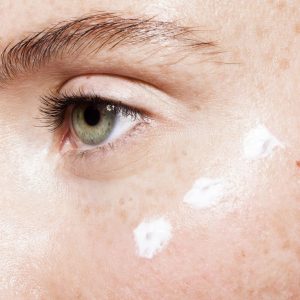 Many patients come to me seeking help for hyperpigmentation after trying various skin brightening creams bought over the counter or online, sometimes from overseas sources. While the desire to improve uneven skin tone is understandable, it is critical to be cautious because unregulated products can do more harm than good.
Many patients come to me seeking help for hyperpigmentation after trying various skin brightening creams bought over the counter or online, sometimes from overseas sources. While the desire to improve uneven skin tone is understandable, it is critical to be cautious because unregulated products can do more harm than good.
Possible Side Effects of Skin Whitening Cream
Unlike prescription treatments that are carefully formulated and tested, many over-the-counter or imported creams may contain undisclosed or unsafe ingredients. For example, some products contain prescription-strength hydroquinone or steroids not listed on the label. Using these without supervision can lead to serious side effects, including:
- Ochronosis: A rare but severe condition where the skin paradoxically darkens permanently and becomes thickened and bluish-black in appearance.
- Skin thinning and irritation: Long-term use of potent steroids can damage your skin barrier and cause redness, sensitivity, and infection risk.
Skin Bleaching Gone Wrong: A Case to Consider
I treated a patient who developed worsening hyperpigmentation after using a cream given to her by her sister. The product, purchased abroad, contained hydroquinone at prescription strength but was not labeled as such. Instead of improving, her skin darkened significantly—a condition we identified as ochronosis. Treatment required careful medical management with chemical peels and specialized topical therapies over many months.
How to Protect Yourself From the Dangers of Skin Lightening Creams
- Consult a Dermatologist: Before trying any skin brightening or pigment-correcting products, get professional advice. A dermatologist can recommend safe, effective treatments tailored to your skin type and condition. This is especially true for patients with dark skin.
- Use Verified Products: Choose products from reputable brands, ideally those recommended by your healthcare provider. Avoid products with vague ingredient lists or those purchased from unverified sources.
- Read Labels Carefully: Look for ingredients like hydroquinone, retinoids, or corticosteroids, and use only under medical supervision.
How to Treat Skin Damaged By Bleaching Cream
If you’ve experienced skin damage from using a bleaching cream, it’s essential to take steps to promote healing and protect your skin. Immediately discontinue using the bleaching cream to prevent further irritation or burns. Hydrate your skin with gentle moisturizers that contain ingredients like glycerin, hyaluronic acid, or ceramides to help restore its moisture balance. You can also look for soothing agents like aloe vera, chamomile, or calendula to reduce redness and inflammation. Avoid harsh products such as exfoliants, retinoids, or anything with strong fragrances or alcohol, as these can aggravate the condition. Bleaching cream can make the skin more sensitive to sunlight, so make sure to apply sunscreen with an SPF of 30 or higher every day, even if you’re indoors. Cleanse your skin gently with a mild, non-drying cleanser, and refrain from using hot water, which can further irritate the skin. We also recommend that you consult a dermatologist, who can provide specialized advice and treatments. In some cases, a mild hydrocortisone cream may help reduce inflammation, but it’s best to check with a professional first.
The Importance of Personalized Treatment for Your Skin
Hyperpigmentation is complex and varies greatly between individuals. What works for one person may not work for another. Self-treating with inappropriate products often leads to frustration and worsening symptoms.
Prescription treatments are designed to target the pigment-producing cells safely and effectively. They also come with instructions on duration and frequency to minimize side effects.
While the promise of quick brightening can be tempting, unregulated skin products pose real risks. The best approach to hyperpigmentation is a carefully planned treatment overseen by a dermatologist. This ensures safety, effectiveness, and the best chance for improving your skin’s appearance without harm. If you are struggling with dark spots or uneven pigmentation, please book a consultation with Minars Dermatology. Together, we can develop a treatment plan that suits your unique needs and goals.









